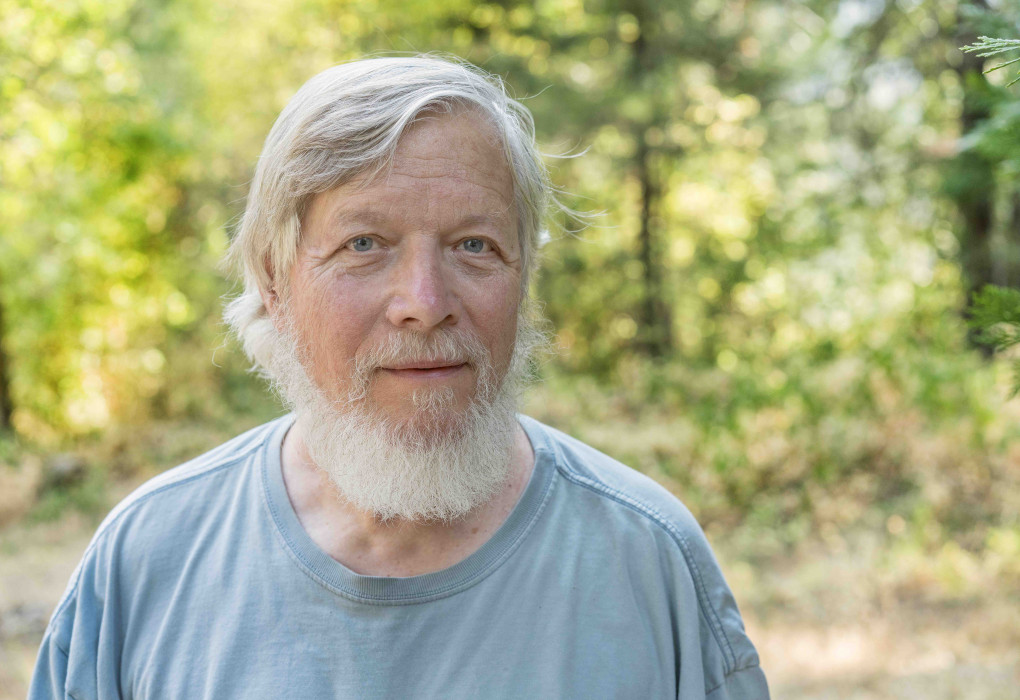River Steward Stories: Stan Petrowski
In this first installment of our "River Steward Stories", we catch up with River Steward Stan Petrowski who has successfully advocated for his homewaters on the South Umpqua to reform harmful suction dredge mining practices, given a voice to the iconic spring Chinook salmon on the brink of extinction, and been recognized as a leader in holistic habitat restoration to improve conditions for threatened coho salmon by federal forest managers.
River Steward:
Stanley Petrowski
River:
South Umpqua River, Oregon
1. What do you love about your homewaters?
The South Umpqua watershed has a history of aquatic species abundance. To me, that is hope for recovery. The system itself crosses a plethora of environmental conditions that affords a broad spectrum of ecological potential for its unique salmonid species.
2. How long have you been a River Steward?
I have been a River Steward since 2009.
3. What does being a River Steward mean to you?
I have long been an advocate for the concept of being a "person of place". Until communities assume responsibility for their ecosystems and aquatic habitat in particular, the notion of vibrant waters and abundant fish will not come into being.
4. Why is being a River Steward important to you?
We often put the responsibility of water quality and river health into the hands of state and federal agencies. Unfortunately, the division of management and ownership is often lost in the bustle of life. As a River Steward, I am responsible to make sure the agencies are doing their job with the primary concern for the health of the natural world, versus the interests of wealthy politically influential stakeholders who seek profit over the health of the watershed and its communities.
5. What are you working on in your homewaters?
Besides carefully observing the pulse of the river's health and assessing its areas of vulnerability, I am deeply engaged in holistic habitat restoration with an emphasis on aquatic habitat.
6. Are there any successes or challenges that you would like to share?
I established a local, community-based 501c3 and have been successful at engaging private citizens and agencies alike in the collaborative process that facilitate projects to benefit community and environmental health (Learn more at www.surcp.org). To date, we have implemented over 11 million dollars of aquatic habitat restoration projects that focus on salmonid and anadromous fish recovery. This is taking place within the confines of a county that has declared itself the self-styled timber capital of the world. Ultimately, the biggest barrier to advancing restoration work has been political. Valuable fiscal tools that would support capacity and advance the scope and scale of aquatic restoration work are unavailable due to direct opposition of County Commissioners.
7. Are there threats to your river you are concerned about? Or upcoming actions that people can help with?
I am deeply concerned that the South Umpqua River system and its high ecological potential have been written off by state and federal agencies as a sacrifice zone because of timber industry control over the basin. Timber production and agriculture are heavily impacting and downgrading habitat throughout the system. The result is a permanent designation as a health hazard by the State due to toxic concentrations of cyanobacteria. In addition, reaches of the South Umpqua have high mercury content and there is a superfund site located in the watershed that directly sterilized 17 miles of historical Coho salmon spawning habitat. The South Umpqua Chub is on the verge of extinction due to extreme concentrations of non-native Smallmouth Bass.
Even more significant is the fact that the summer Steelhead run has been extirpated. The Upper South Umpqua River supports the remnant of a once thriving spring Chinook salmon run. That population has been below viable genetic numbers for more than half a century. The entire Umpqua River system has been designated as temperature compromised by the Oregon Department of Environmental Quality. Summer low flows and extreme winter turbidity are chronic issues. Invasive Small Mouth Bass and policies of catch and release by the river guides, sport anglers, and tourism enthusiasts is not affording the benefits of unlimited bass retention, a regulation change recently enacted to combat this issue by the Oregon Department of Fish and Wildlife. A policy of catch and keep, that would change the status of bass from a sport fish to an invasive predator needs to be done. Policies that support appropriate utilization of irrigation water, stricter water rights scrutiny, and riparian habitat health must be instituted by the county.
8. What do you hope for the future of this watershed? What do you want your community to know?
The South Umpqua River is a transient snow-fed system. To restore a modicum of aquatic health, all of the river's communities are going to have to get engaged and work together. Two thirds of the land in the South Umpqua basin is Federal Public Trust managed by the United States Department of Agriculture and the Department of Interior.
I see the highest potential for change in the prospect of extensive tourism and a method of shifting the county's fiscal burdens from timber receipts from the public trust to taxation of tourism. Importantly, the industrial timber lands must cease and desist all clear cutting and pesticide spraying as its main management regime. Only then will the river's tributaries return to their former perennial flow, lower water temperatures and abundant fish.
Stay tuned for upcoming opportunities to support Stan's work on helping designate the South Umpqua River as a State Scenic Waterway and advocate for the imperiled spring Chinook salmon.

